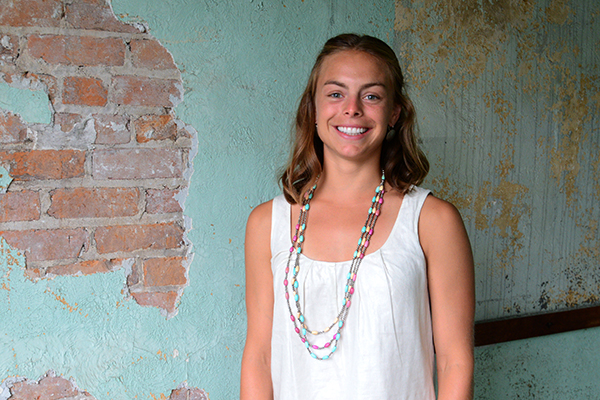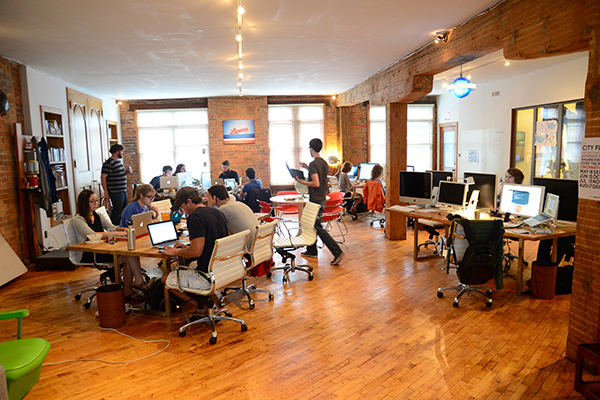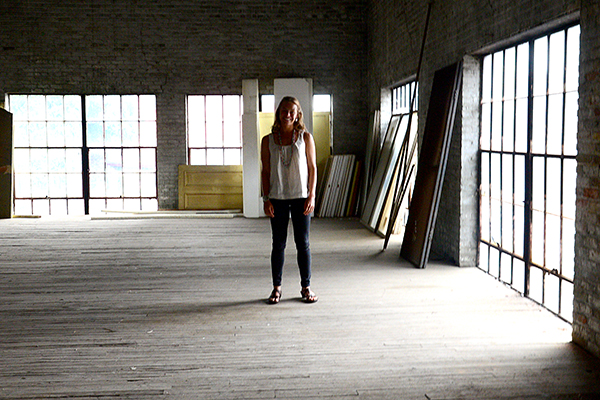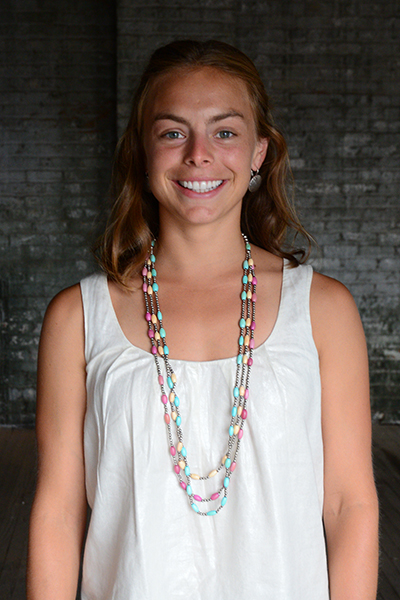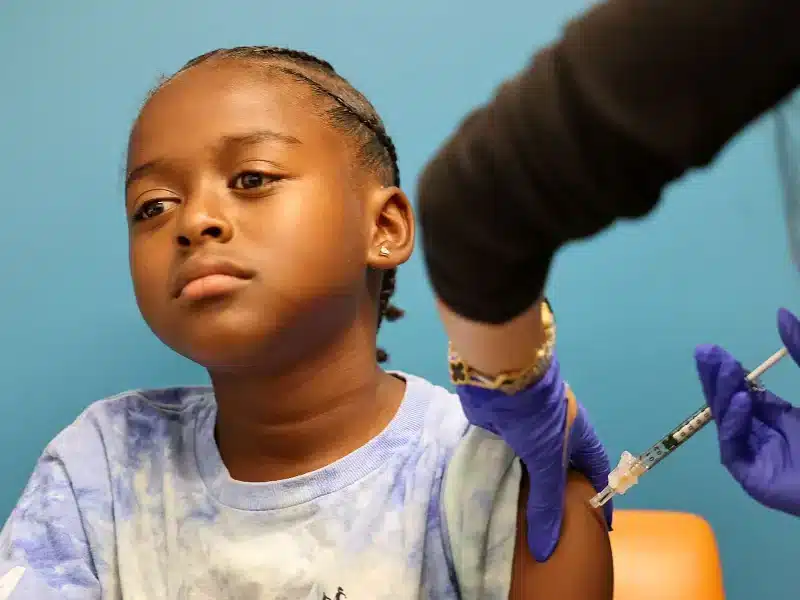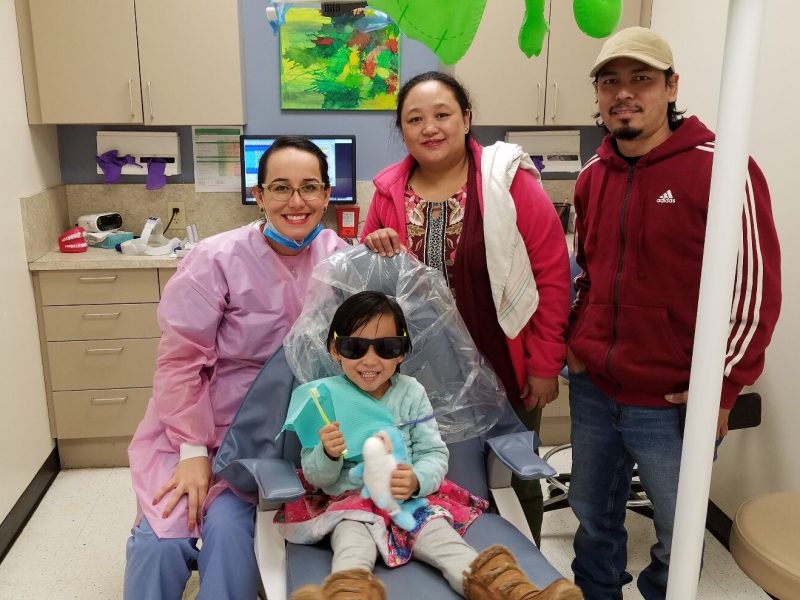Fine fellows: Chelsea Koglmeier charts her own path
Chelsea Koglmeier never let other people's expectations deter her drive to learn, live and grow. The Mariemont native traveled the globe before returning to her hometown to start a career she never planned, in a company that barely existed.
Traditional work expectations never suited Mariemont native Chelsea Koglmeier, whose post-graduation expectations came as a surprise to her high school advisers. For her, the first step after graduation wasn’t college.
“Growing up in Mariemont was amazing,” Koglmeier says. “But it was very homogenous, and I wasn’t interested [in that].”
The 2007 graduate opted to join the Americorps program City Year, during which she taught Spanish to students in an inner-city Philadelphia school.
“It wasn’t a good experience and it wasn’t a bad experience, but it was the most impactful one I’ve ever had in my life,” Koglmeier says. “It totally transformed the way I see the world and the context as to who I am and the advantages I grew up with.”
Following City Year, Koglmeier enrolled at Duke University, only to find that her experience with City Year made her freshman year a daunting challenge.
“I jumped into a freshman campus of kids who had just graduated from prep schools all over the northeast,” Koglmeier says. “And I had been coming from living under the poverty line, supporting myself and working in a school that had entirely opened my eyes to a lot of new things.”
Still, Koglmeier’s plans at Duke aligned well with her prior experiences.
Her first day at Duke, Koglmeier joined Duke Engage, a program that sends students around the world to complete civic engagement work over the summer.
The summer after her freshman year, Koglmeier lived in Kampala, Uganda, where she worked with women in a refugee camp running a microfinance organization. In addition to helping with business models, Koglmeier led fundraisers and collected $6,000 to help send poverty-stricken kids to school.
Koglmeier’s next major venture came during her junior year, when she traveled to Bolivia, through SIT, another study abroad program. There, she furthered her Spanish.
“Essentially I wanted to do anything I could to expose myself to things I didn’t understand,” Koglmeier says. “I wanted to put myself in situations where I felt uncomfortable.”
Her Spanish skills immediately benefitted her next endeavor, when she helped start the Durham, N.C., arm of Accion Emprendedora, a Chilean-born nonprofit that helps train Hispanic entrepreneurs.
“That was a big turning point for me,” Koglmeier says. “Instead of being socially oriented, which is what I had been in everything up until that point, I was starting something and growing something, and I realized I loved that.”
During her senior year, Koglmeier opened an email she normally wouldn’t open. It was from Venture For America, and it offered another opportunity for her to push the boundaries of typical expectations, as well as a chance to work near her hometown.
After flying to New York, she was offered one of the nonprofit program’s inaugural fellowships in Cincinnati. She began working at The Brandery, and within the year, took a position with Brandery-graduate Roadtrippers.
No place like home
Koglmeier says that since her return, the interaction with those around her and building relationships through living and working downtown make her feel at home.
“My favorite thing about Cincinnati is that you walk down the street and not only does everyone say hi to you, but everyone smiles at you,” Koglmeier says. “I think it’s the best part about living here.”
Lessons learned while living in Cincinnati
While Koglmeier grew up in Mariemont, her experience downtown has been completely different, she says.
“I think probably the most surprising part about living down here is that there’s not more apparent tension between the gentrification of OTR and the people who have lived here for the last 50 years,” she says.
She sees the steady business development as the most exciting element of the city.
“I’m obsessed with [Cincinnati] in the way a lot of other people are,” Koglmeier says. “The fact that every month there’s a new place popping up to check out.”
Best places to come up with big ideas
Koglmeier’s familiarity with water and pools—she has swum competitively since she was 6 years old—makes outdoor swimming pools natural spots for Koglmeier to think.
“I swim at 6 a.m., three times a week,” Koglmeier says. “The sun rises while I’m swimming, and there’s just something about the combination of how loud it is in the pool and how solitary and quiet it is, and the zen you get from the repetitive motion of swimming that gives me really good thinking time.”
What’s next?
For the time being, Koglmeier plans on staying with Roadtrippers, wherever the company takes her.
One day, though, the entrepreneurial-minded powerhouse plans on starting her own company. After working in both the nonprofit and for-profit sectors, Koglmeier has begun developing ideas for future business models.
“For the most part, I think the nonprofit model is flawed,” Koglmeier says. “I don’t believe we need to walk around with our hands outstretched and say, ‘Hey, give me money because I want to solve this social problem.’ I think there are other ways to do it, and that is creating a company with a double bottom line—both a for-profit mission and a social mission—and that is my goal.”

